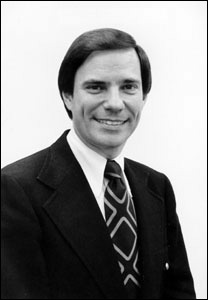Jack Whitescarver, Ph.D.
Dr. Jack Whitescarver arrived at the NIAID in 1977 after a research career in cancer and infectious diseases. “I jumped in the middle of a snowstorm from the Harvard School of Public Health…to the NIH and the Grants Associates Program,” he recalls, where his primary responsibility was to work with constituent groups.
When Dr. Whitescarver came to NIAID, there was little interaction between the Institute and advocacy or professional groups, a situation that was soon to change. Working with then-NIAID director Dr. Richard Krause, the two men wanted people to appreciate the importance of continued vigilance against infectious diseases. “Just because we had a battery of antibiotics didn’t mean that we had the cure-all for every infectious disease,” he says. “There were no antivirals, for example, and there were lots of viral diseases.”
Four years after Dr. Whitescarver arrived, a new virus, HIV, appeared on the scene. As AIDS began to spread, NIAID realized the public needed education, not only to help prevent infection but to alleviate unwarranted fears about the disease. Although NIAID had no mandate or allocated funding for outreach activities, Dr. Whitescarver helped organize meetings across the country to inform people about AIDS. “The goal was to get the truth out about AIDS, and to get rid of the myths associated with it,” recalls Dr. Whitescarver. “There were people being kicked out of restaurants, losing their jobs….Physicians wouldn’t work with them and ambulance drivers wouldn’t pick up anybody whom they thought looked like an AIDS patient.”
Dr. Whitescarver eventually left NIH for Emory University, but later returned as the deputy director of the Office of AIDS Research, where he is currently the acting director.
Transcript of Interview:
Dr. Jack Whitescarver, April 18, 1990


